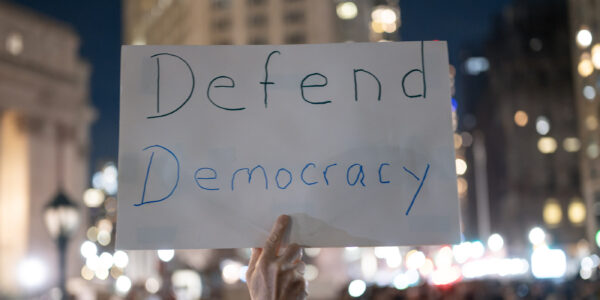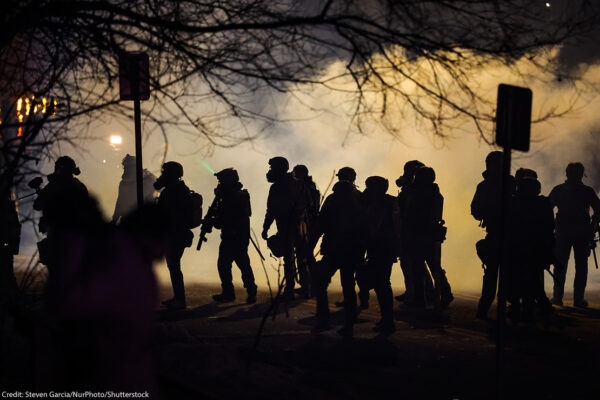
Which government agency is able to collect and share your personal information in the name of protecting national security?
In how many states have ACLU affiliates requested information on law enforcement’s use of license-plate tracking?
In which state is an ACLU affiliate challenging the state’s voter ID law that could disenfranchise more than one million voters?
The Ninth Circuit Court of Appeals ruled that the ACLU’s challenge to what government blacklist should go forward?
Which chamber voted down a cybersecurity bill that contained significant privacy improvements from CISPA?
The Biggest New Spying Program You’ve Probably Never Heard Of
What if a government spy agency had the power to copy and data mine information about ordinary Americans from any government database? This could include records from law enforcement investigations, health information, employment history, travel and student records. Literally, anything the government collects would be fair game, and the original agency in charge of protecting the privacy of those records would have little say over whether this happened, or what the spy agency did with the information afterward. What if that spy agency could add commercial information, anything it – or any other federal agency – could buy from the huge data aggregators that are monitoring our every move?
It has already happened.
This full-frontal assault on our privacy wasn’t passed through an act of Congress or international treaty but through deceptively titled “guidelines” for the National Counterterrorism Center (NCTC).
What We Know About License Plate Tracking, What We Don't, And Our Plan to Find Out More
This week the ACLU launched a nationwide effort to find out more about automatic license plate readers (ALPR) in 38 states. By snapping photographs of each license plate they encounter—up to three thousand per minute—and retaining records of who was where when, license plate readers are fundamentally threatening our freedom on the open road.
Pennsylvania’s Voter ID by the Numbers
This week marked the conclusion of the trial in the ACLU of Pennsylvania’s challenge to the state’s restrictive voter ID law. The trial began with testimony from Ms. Viviette Applewhite, a feisty 93-year-old Black great-great-grandmother who uses a wheelchair. Ms. Applewhite, who once marched with Martin Luther King, Jr., has voted in almost every election for the past 50 years and cast her first vote for president for FDR. Despite her age and limited physical mobility, Ms. Applewhite traveled two hours from Harrisburg to Philadelphia to testify as to how she may not be able to vote in this year’s presidential election because she has not been able to obtain an acceptable ID under the state’s new law.
Ninth Circuit Gives ACLU’s No-Fly List Clients Their Day in Court
Last week, the Ninth Circuit Court of Appeals unanimously ruled that the ACLU’s lawsuit challenging the U.S. government’s secretive No-Fly List should go forward. This decision is a true victory for our clients and all Americans.
Cyber Update: Do or Die Time
Yesterday, the Senate voted against moving forward on cybersecurity legislation, ending the bill’s chances at final passage. As we told you earlier this week, the Senate version of the cybersecurity bill (S. 3414, the Cybersecurity Act), was significantly improved recently with several new privacy-oriented changes, including a mandate that information shared with the government under the program go to civilian agencies and not the National Security Agency or other military components.
This is your week in civil liberties. Let us know if this is useful or if you'd like to see changes. Share your thoughts: ideas@aclu.org
Learn more about your rights: Sign up for breaking news alerts, follow us on Twitter, and like us on Facebook.


